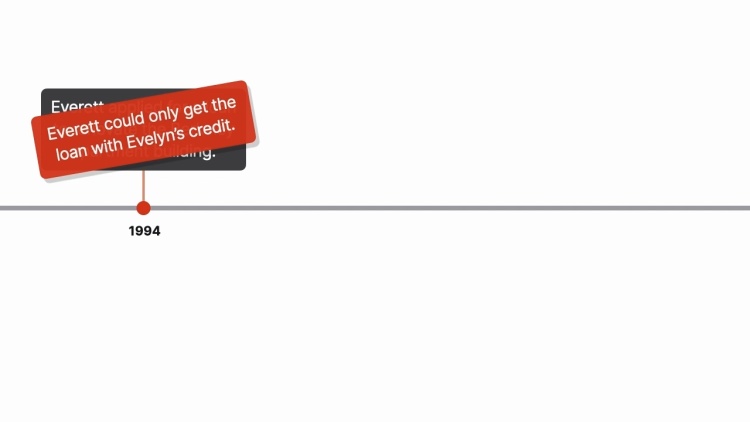Estate of Bibb
California Court of Appeal
87 Cal.App.4th 461 (2001)

- Written by Jacqueline (Hagan) Doyer, JD
Facts
Evelyn Bibb (defendant) married Everett Bibb in 1992. Prior to his marriage to Evelyn, Everett had been married to Ethel Bibb. Everett and Ethel had one child, Dozier Bibb (plaintiff). During Everett’s first marriage to Ethel, Everett bought a piece of property in Berkeley. Ethel passed away in 1977. Subsequently, Everett purchased a Rolls Royce while he was dating Evelyn. After Everett and Evelyn were married, the Rolls Royce was registered to either Evelyn or Everett through a form with the Department of Motor Vehicles (DMV). Neither Everett nor Evelyn signed the registration form. In 1994, Everett applied for a loan and used the Berkeley property to secure the loan. Because Everett needed Evelyn’s credit to qualify for the loan, he signed a grant deed conveying the property to himself and Evelyn as joint tenants. Everett passed away without a will in 1995. Evelyn registered the vehicle in her name and also put the title to the Berkeley property in her name. Dozier filed a petition to establish that the Berkeley property and the Rolls Royce were actually the property of Everett’s estate, arguing that Everett’s separate property had not been legally transmuted into community property. The trial court denied Dozier’s request. Dozier appealed the trial court’s judgment to the court of appeal.
Rule of Law
Issue
Holding and Reasoning (Walker, J.)
What to do next…
Here's why 907,000 law students have relied on our case briefs:
- Written by law professors and practitioners, not other law students. 47,100 briefs, keyed to 996 casebooks. Top-notch customer support.
- The right amount of information, includes the facts, issues, rule of law, holding and reasoning, and any concurrences and dissents.
- Access in your classes, works on your mobile and tablet. Massive library of related video lessons and high quality multiple-choice questions.
- Easy to use, uniform format for every case brief. Written in plain English, not in legalese. Our briefs summarize and simplify; they don’t just repeat the court’s language.





